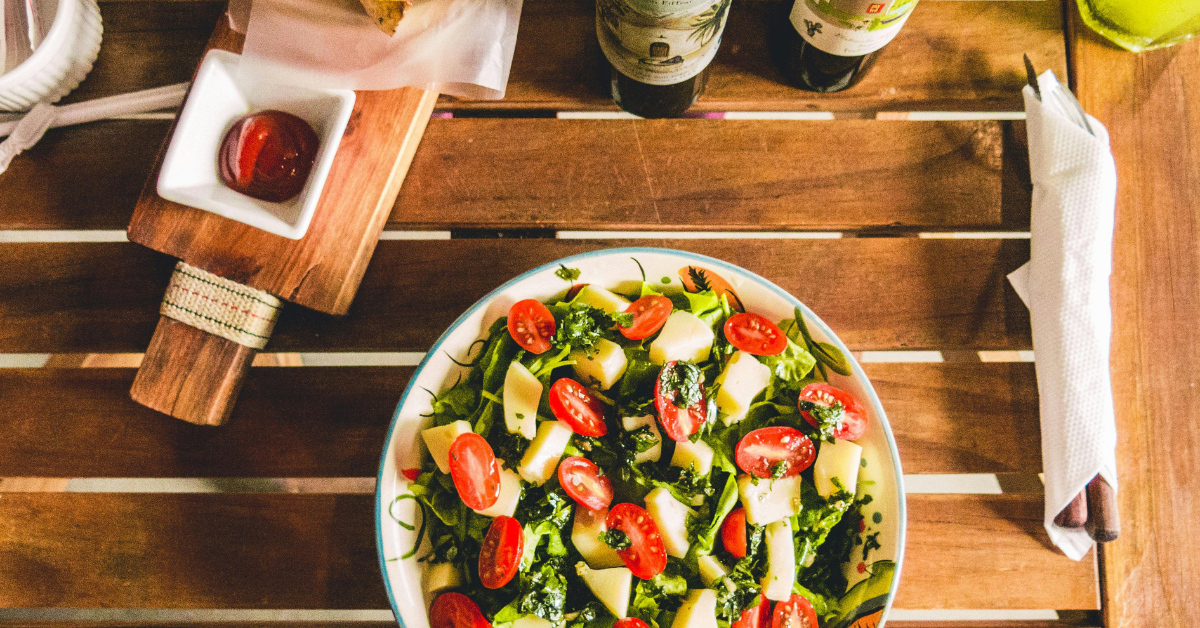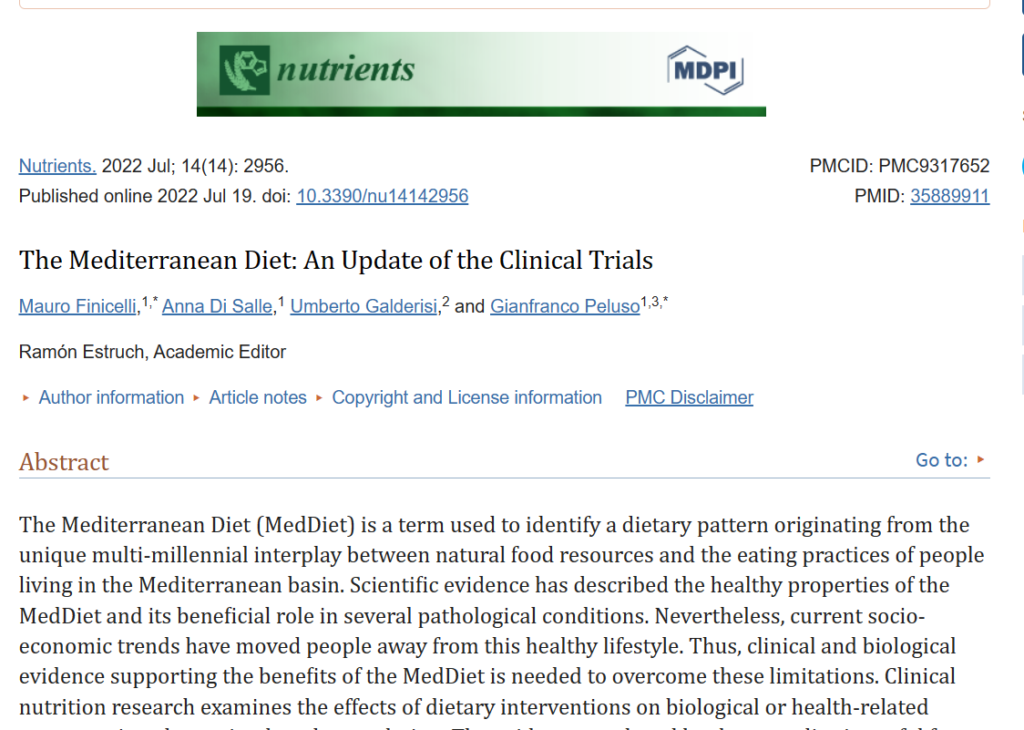Whole Food Plant-Based vs. Mediterranean Diet

Confused by the whirlwind of trendy diets?
You’re not alone!
Today, we will explore two healthy eating powerhouses. They are the Whole Food Plant-Based (WFPB) and Mediterranean diets.
Both boast impressive health benefits, but how do they stack against each other?
Get ready for a breakdown of their similarities and differences.
It will show which one might be perfect for you!
Similarities: A Celebration of Plants
The WFPB and Mediterranean diets might seem like rivals. But they both love all things plant-based.
Here’s where they find common ground:
Both boast impressive health benefits, but how do they stack against each other?
Get ready for a breakdown of their similarities and differences.
Power to The Produce
Both diets put fruits, vegetables, and whole grains on a pedestal.
They encourage filling your plate with a rainbow of colourful fruits and veggies. This variety gives you a daily dose of vitamins, minerals, and fibre.
The Magic of Monounsaturated Fats
Olive oil takes centre stage in both approaches. This heart-healthy fat promotes satiety and offers anti-inflammatory benefits.
Many times, plant-based whole food discourages cooking with oil.
Bye-Bye Processed Foods
Forget sugary drinks, refined grains, and processed snacks. Both diets advocate limiting these for a cleaner, more nutritious dietary pattern.
What about the differences?
Differences: Finding Your Dietary Niche
They both love plants. However, the WFPB and Mediterranean diets differ.
This difference is in terms of animal products and their philosophy.
Animal Inclusion
WFPB
This diet is a strictly plant-based party. Excluding meat, poultry, fish, dairy, and eggs.
Mediterranean
Animal products are welcome but in moderation. Eat fish a few times a week. Also, have small portions of poultry or eggs. Have some dairy products like yoghurt or cheese now and then.
Fats in Focus
WFPB
Focuses on fats naturally occurring in plants like nuts, seeds, and avocados. Limit added fats.
Olive oil is not encouraged for use in cooking.
Mediterranean
It embraces the health benefits of olive oil. It encourages moderate intake for its flavour and heart-healthy properties.
Dietary Philosophy
WFPB
This approach is more restrictive. It cuts out whole food groups and focuses on whole, unprocessed, plant-based foods.
Mediterranean
Offers more flexibility, incorporating animal products in moderation. It celebrates the social and cultural aspects of food. It encourages meals shared with loved ones.

With all the similarities and differences, what are your health benefits?
Health Benefits: Reaping the Rewards of Wholesome Eating
Mountains of research back both the WFPB and Mediterranean diets. It shows their positive impact on our health.
Let’s look at the benefits they offer:
Heart Health Heroes
Both diets contribute to a healthy heart.
They focus on fruits, vegetables, whole grains, and healthy fats.
They lower “bad” LDL cholesterol and blood pressure. This effect decreases the risk of heart disease, stroke, and heart attack.
Weight Management Warriors
Both diets focus on fibre-rich whole foods. This focus promotes fullness and keeps you satisfied for longer. It helps with weight management and prevents overeating.
Diabetes Defence System
Both approaches can be powerful tools for managing blood sugar levels.
Eating whole grains is critical. It helps control insulin and lowers the risk of type 2 diabetes. Limiting processed carbs also helps.
Cancer Crusaders
Both diets contain fruits, vegetables, and whole grains. These foods contain many antioxidants and anti-inflammatory compounds. They help lower the risk of some types of cancer.
Beyond The Basics
The WFPB diet may offer more benefits for gut health. This benefit is due to its high fibre content, which promotes a healthy microbiome.
The Mediterranean diet focuses on the social aspects of food. It may improve thinking and cut dementia risk.
Remember
While both diets boast impressive benefits, individual results may vary.
Ask a doctor or dietitian for help. They can help you find the best approach for your health needs and goals.
Potential Challenges: Navigating the Road to Plant-Powered Wellness
Even the most delicious journeys can have a few bumps along the road.
Both the WFPB and Mediterranean diets have some potential challenges to consider:
WFPB: Ensuring Your Nutrient Arsenal Stay Stocked
Vitamin B12
This essential vitamin is vital for nerve function and the production of red blood cells. Animal products contain it.
WFPB eaters may need to consider fortified foods or supplements. This supplementation is to ensure they get enough nutrients.
Iron
Plant-based foods (like lentils, beans, and leafy greens) contain iron. But our bodies don’t absorb it as well as iron from animals.
Pairing iron-rich plant foods with vitamin C can enhance absorption.
Calcium
Dairy is a significant calcium source.
Excluding it from the WFPB diet means adding calcium-rich plants. These include leafy greens, fortified plant milks, and tofu with calcium sulfate.
Mediterranean: Finding Balance in the Land of Olive Oil
Fat Management
While olive oil is a healthy fat, it’s still calorie-dense. Moderation is vital to avoiding exceeding your daily calorie needs.
Hidden Sugars
The Mediterranean diet allows for indulgences. But processed foods and sugary treats can creep in.
Being careful of portion sizes and food choices is essential.
Social Pressures
Following the Mediterranean diet can be challenging. It’s especially true at social gatherings and restaurants with few plant-based options.
Researching menus beforehand and advocating for your dietary needs can help.
Here’s the reason
These challenges are manageable!
With planning, you can navigate these and succeed on your plant-based journey.
Who Should Choose Which Diet? Finding Your Perfect Plate
The world of healthy eating isn’t one-size-fits-all.
Your choice between the WFPB and Mediterranean diets depends on your tastes, health goals, and lifestyle.
Here’s a roadmap to help you find your dietary sweet spot:
The WFPB Champion
Ideal for:
Those seeking a stricter, plant-based approach for weight loss or ethical reasons (veganism).
Eating plants may help people with some health conditions. These include types of diabetes and heart disease.
First, consult your doctor.
People who enjoy a structured and focused dietary approach.
Considerations
- Requires careful meal planning and potential supplementation for vitamin B12, iron, and calcium.
- It may be more challenging socially, with fewer options at restaurants or gatherings.
The Mediterranean Master
Ideal for:
Those who enjoy a more flexible approach with occasional animal products.
Individuals who value the social and cultural aspects of food.
People seek a heart-healthy diet rich in fruits, vegetables, and healthy fats.
Considerations
Requires mindful portion control to avoid exceeding calorie needs with olive oil.
It may need planning and navigation when faced with processed food temptations.
Remember
This journey is just a starting point.
Ask a doctor or dietitian for personalized guidance. They will base it on your needs and medical history.
They can help you tailor either diet for the best health. They will consider your preferences and lifestyle.
Remember
You can stick with the best diet in the long run. So, explore, experiment, and find the delicious path to a healthier, plant-powered you!
Conclusion
The WFPB and Mediterranean diets are both champions in healthy eating.
They offer many health benefits, from a healthier heart to better blood sugar control.
They have some key differences. But, their beauty lies in their foundation of tasty, plant-based goodness.
So, who wins?
You do!
This post has given you the knowledge.
It will help you choose a diet that fits your life and health goals.
Ready to embark on your plant-powered journey?
Visit our website for tasty WFPB and Mediterranean recipes. They will kickstart your healthy eating adventure!
Share your favourite plant-based meals in the comments below. They will inspire others to join the movement to a healthier, happier you!
